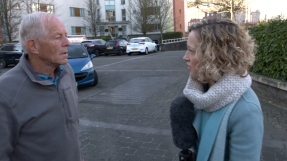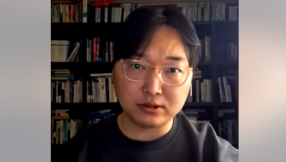'Inclusive' Faith Schools Face Opposition
|PIC1|Under legislation being put forward by the Government Tuesday, new faith schools in England will be required to admit at least 25 per cent of pupils from the wider community.
An amendment to the Education Bill is being tabled by Lord Baker, who called "exclusive" faith schools "divisive".
Education Secretary Alan Johnson said he thought the amendment made "good sense". But faith groups, including Muslim and Jewish representatives have criticised the idea.
The Catholic Education Service also opposed the new plan.
Director Oona Stannard said faith schools were "not part of the problem".
In a lengthy statement issued by the Catholic Education Service for England and Wales, Ms Stannard said the governing bodies of Catholic voluntary aided (VA) schools were the admissions authorities "and should remain so without political interference".
"Their role should not be compromised by a requirement to implement social engineering through externally imposed admissions quotas," she said.
"Schools with a religious character are part of the solution for society, not part of the problem."
But Lord Baker said children were being divided at the ages of five and 11.
"And we've only got the example in Northern Ireland to see where that leads," he said.
The exclusive Muslim schools were very exclusive, he said.
"The selection criteria is that they make it clear that they want to create a total Muslim personality, and at the age of 11 pupils are asked if they've read the Koran, or are they fluent in Arabic, have they learnt the prayers.
"That means that children of other faiths will not apply. And I think that further divides society."
Mr Johnson said he saw good sense in Lord Baker's move: "There is an issue about community cohesion."
He referred to the Church of England's recent move, adding: "I think that is very good and the feeling in Parliament is that should be repeated by other faiths."
Earlier this month, the Church of England announced that all new schools would have at least a quarter of their places open to families that were not practising Christians, with the aim to provide schools that were both Christian and inclusive. The plans have been announced by Kenneth Stevenson, Bishop of Portsmouth and the board's chairman, in a letter to Alan Johnson in a move welcomed by the Government.
The Conservative Party also welcomed the proposals.
The measures will apply to new state-funded faith schools of any religion and are not targeted at the Muslim community, Education Secretary Alan Johnson told BBC radio.
"What the debate about Muslims recently has highlighted is that education is such an important part of ensuring that a society does not become divided," he said.
Shadow education secretary David Willetts said Catholic schools had achieved a better social and ethnic mix than other local schools.
"It may be the case that when it comes to Muslim schools, part of
the problem is that the Muslim faith group is also associated with a set of social and ethnic divides," he said.
But Tahir Alam, who chairs the education committee of the Muslim Council of Britain, said the proposals would not help integration.
"I think this particular amendment that's going through has not been consulted on at all - although the arguments relating to integration are laudable.
"But I don't think this is the only way - or the best way - of achieving that.
"Locking two people in the same room... is not the best way of creating integration."
The chief executive of the Board of Deputies of British Jews, John Benjamin, was sceptical, although he said non-Jewish children were welcome at Jewish schools.
"It does happen in places where the demographics don't support a completely Jewish school - and that is a matter of parental choice.
"But I think it would be nonsensical, where the demand exceeds the supply of places at Jewish schools, for Jewish children to not have the opportunity to go to Jewish schools because of a quota system," he said













